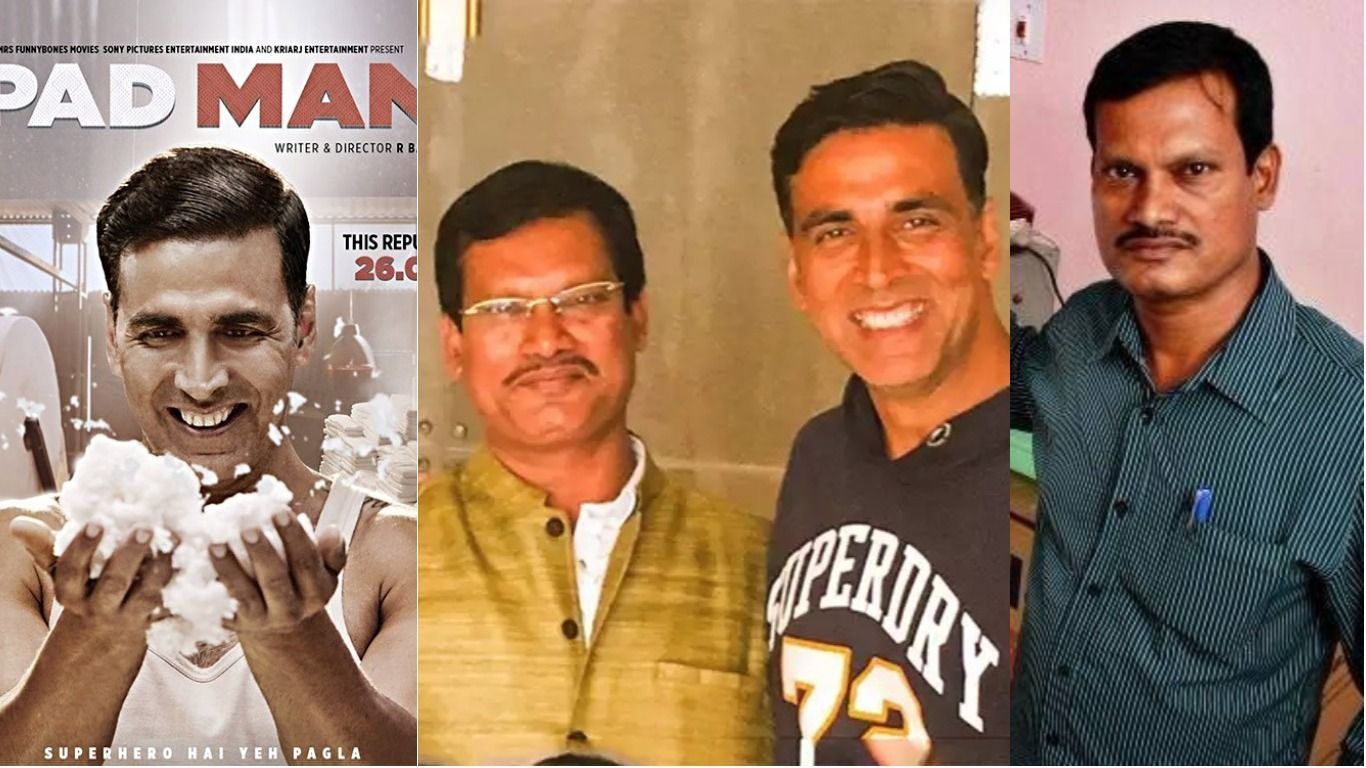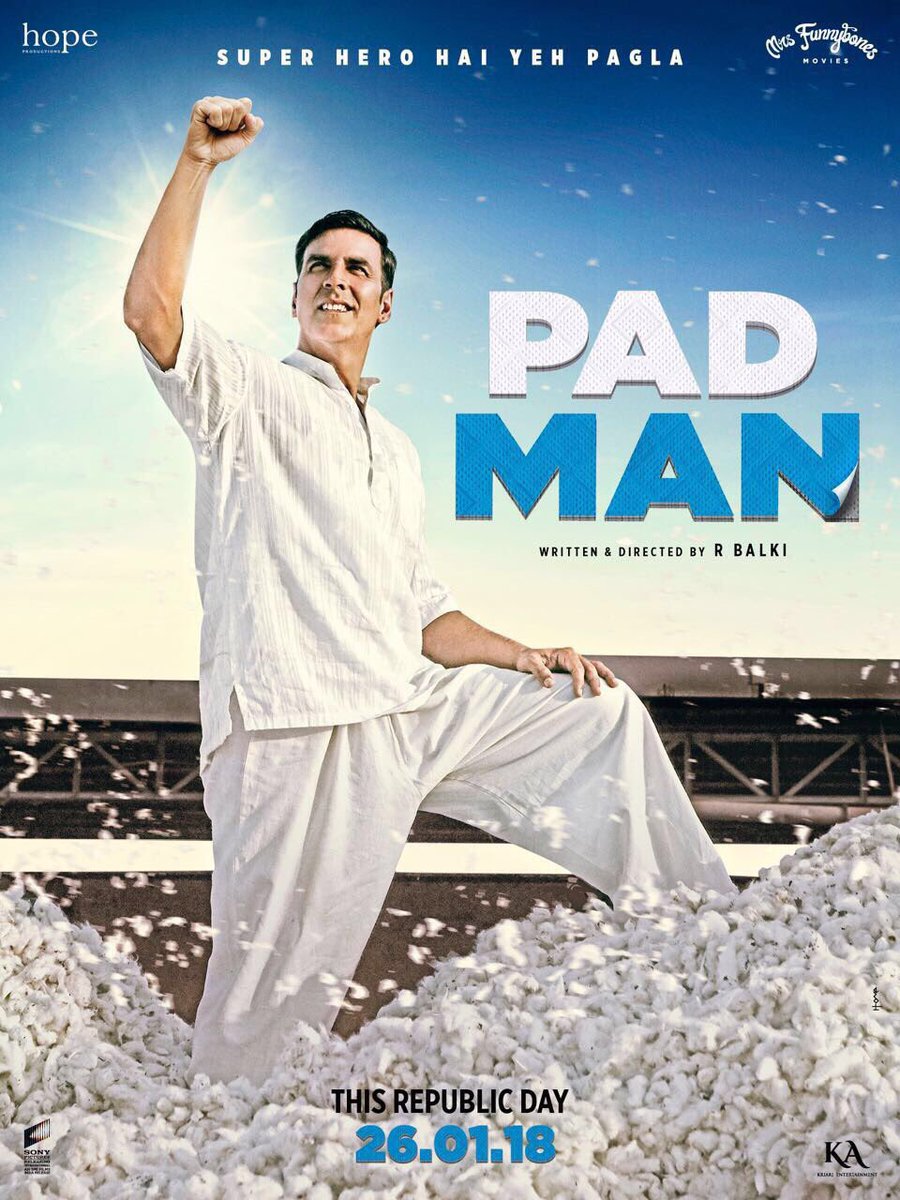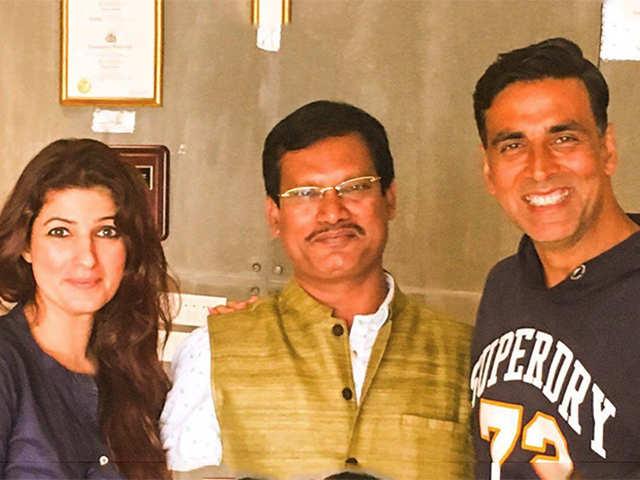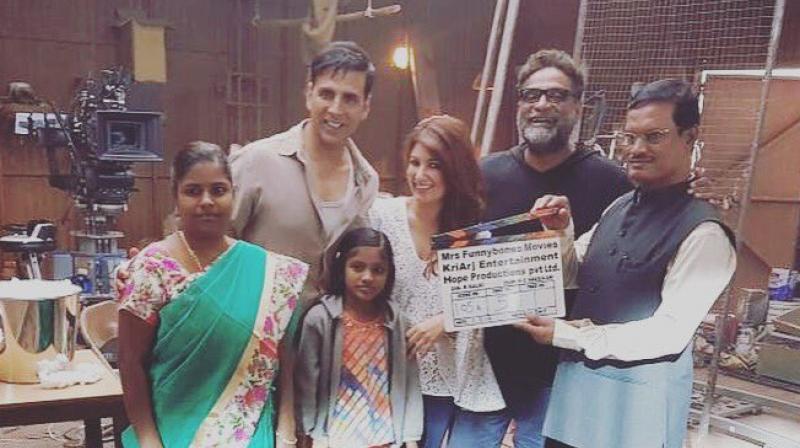Meet The Real Padman Of India- Arunachalam Muruganantham

We, the aam janta of India, wait for the festive season for a lot of reasons. One, it is the time of festivals and national holidays when we get a break from our busy schedules, get to take a day off and spend with our families and friends. Many a time, it is during these times that we reunite with them. Nowadays, holidays have also become important for the movies that come out on those weekends. More often than not, the big films of Bollywood superstars release in the holiday months. Now, it has already become a ritual for a film by Akshay Kumar to release on Republic Day and Independence Day. This year would be no exception with his Padman releasing on Republic Day, 2018.

The trailer for the film is already here and it has been garnering all positive reviews. We love the part where Padman tries out the sanitary napkins himself or even gifts his sisters Sanitary napkins. It is touching and endearing. But do you know about the real-life Padman? His story will inspire you even more.

Padman is based on the life of Arunachalam Muruganantham, who is a school dropout, but rose to success with his empathy and his sheer will to bring hygiene into the lives of women around him.
Who is Arunachalam Muruganantham?
Arunachalam Muruganantham was born in 1962 in Coimbatore. He was the son of a hand weaver. He dropped out from school at a young age and he did sundry jobs as a machine tool operator, yam selling agent, farm laborer, welder to support himself. He got married to Shanthi in 1988 and that was the beginning of a change in him.

His coming face to face with the ‘girl problem’.
As he started to live with a woman, he soon realized that they did not have hygienic practices during periods. Mind you, this is a time and an area where sanitary napkins were a luxury, thanks to its price. Muruganantham saw his wife pick up old rags and newspapers during her menstruation. In an attempt to impress his young wife, he went out to buy sanitary napkin. The napkin made him wonder why such small amount of cotton would cost so much. So he himself decided to take on the task of making cost-effective napkins that can be afforded by all.

He designed his first napkin out of cotton and a clean cloth, but as he gave it to his wife, he realized he would have to wait for a month for the feedback. He also gave it to his sisters, who refused to discuss these matters with a man. As he approached other women in his village, he also learned that women use sand, sawdust, leaves and even ash!
His self-trial
He convinced 20 medical college students to try his product but wasn’t satisfied with the feedback. So he began to try it out by himself. He used rubber bladder to make a uterus and filled it with goat blood. He would then wear the sanitary napkin to check its absorption. But soon he started smelling foul and blood stains could be found in his pants. Even his wife, unable to deal with all the gossip, left him.
It was after two years and a few months that the commercial pads used cellulose fibers derived from pine bark wood pulp. That is how he could make a low-cost machine that would cost only 65k, compared to the 33 million INR that imported machines were priced at.
The success story
In 2006, he went to IIT Chennai with his idea. From there he registered for the Grassroots Technological Innovations Award, which he won. From that amount, he laid the foundation of Jayshree Enterprises, that made sanitary napkins at low cost and employed a lot of rural women.
The After Story
While many people had approached to commercialize his machine, he refrained from that. He provided the machine only to self-help groups. He also sold 1,300 machines to 27 states and now he has also started to export them to developing countries. He was also named as one of the 100 Most Influential People by Times Magazine in 2014.





